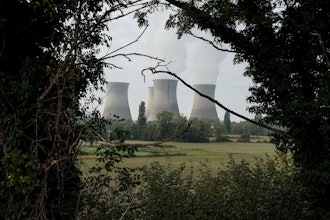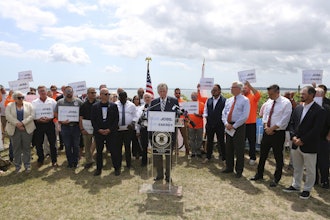
Turkey has launched a second drillship that will drill for gas off neighboring Cyprus' east coast despite the European Union's decision to prepare possible sanctions to make sure Ankara refrains from such illegal actions.
Turkey's energy minister boarded the 230-meter (750-foot) vessel, the Yavuz, which can drill to an estimated depth of up to 12,000 meters (40,000 feet), in a ceremony on Thursday.
Another Turkish drillship is already drilling 40 miles off EU member Cyprus' west coast in waters where the ethnically divided island nation has exclusive economic rights. The Cypriot government condemned the Turkish action as a violation of international law and its sovereign rights.
EU leaders meeting in Brussels spoke of the "immediate negative impact that such illegal actions have across the range of EU-Turkey relations."
They said in a statement that their services will "submit options for appropriate measures without delay, including targeted measures."
EU Commission President Jean-Claude Juncker said they "will not be soft measures."
Turkish Energy Minister Fatih Donmez said his country would defend its rights and those of breakaway Turkish Cypriots to the area's energy reserves "until the end" and would continue drilling "without interruptions." Only Turkey recognizes a Turkish Cypriot declaration of independence.
In a dig at the 28-member EU, Donmez said Turkey rejects "attempts by actors from outside the region to delineate" the eastern Mediterranean.
He said the Yavuz will be drilling off Cyprus' eastern coast in coming months.
Cyprus has divided its exclusive economic zone off its southern coast into 13 blocks, or areas. Turkey, which doesn't recognize Cyprus as a state, says parts of three blocks off the island's west coast fall within its own continental shelf. Turkish Cypriots claim most of seven blocks in the east.
The Cypriot government says any potential gas proceeds will be shared equitably with Turkish Cypriots after a reunification deal is agreed upon and has created a fund into which all such revenues will flow.






















